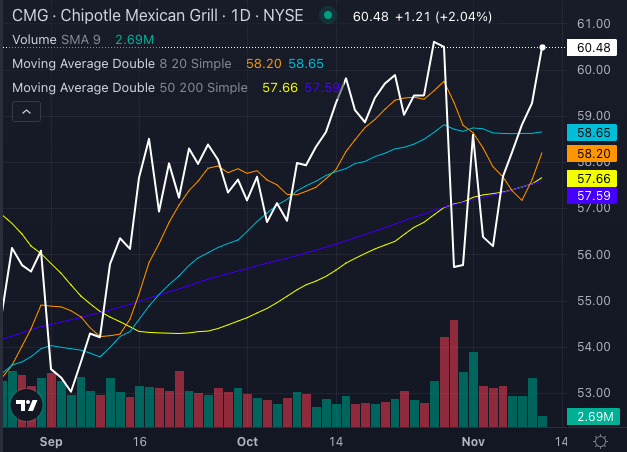Warren Buffett, the legendary “Oracle of Omaha,” has a talent for selecting stocks with enduring value. His Berkshire Hathaway (BRK.B) equity portfolio, estimated at approximately $400 billion, is centered around high-quality companies that deliver consistent returns.
Key among Buffett’s holdings are three dividend stocks of interest: The Coca-Cola Company (KO), The Kroger Co. (KR), and American Express Company (AXP). These companies not only represent vital sectors of the economy but also reflect Buffett’s affinity for businesses with solid fundamentals, reliable dividend distributions, and a consumer-centric focus.
As some of these stocks approach Wall Street’s average price targets, potential investors are advised to watch for potential pullbacks to established support levels. The timing of investments can have a significant impact. Acquiring these Buffett-endorsed stocks during downturns may offer a prime opportunity to obtain quality dividend stocks at more favorable prices.
#1. Coca-Cola Company (KO): A Beverage Behemoth with Dividend Strength
Coca-Cola (KO) stands as a global leader in the beverage industry, renowned for iconic brands like Coke, Sprite, and Fanta. As a multinational corporation, Coca-Cola markets over 500 beverage brands worldwide.
Over the past year, Coca-Cola’s stock has seen moderate growth, with a 52-week gain of just 5.4%. The stock has yielded a 6.8% return this year and is currently trading close to its peak.
With a market cap of $274.65 billion, Coca-Cola is a well-established stock trading at a reasonable forward P/E of 22.59, compared to its trailing P/E of 23.36.
The latest quarterly dividend from this Dividend King was $0.485 as of June 14, 2024, translating to an annualized dividend of $1.94 with a forward yield of around 3%.
In its first quarter 2024 earnings report, Coca-Cola revealed robust performance, including a 1% rise in unit case volume, a 3% growth in net revenues to $11.3 billion, and an 11% increase in organic revenues. Both EPS and comparable EPS also saw healthy growth.
Coca-Cola’s strategic partnership with Microsoft to enhance cloud and artificial intelligence initiatives reflects its ongoing technological evolution. This commitment highlights Coca-Cola’s dedication to innovation.
Market analysts view KO stock favorably, with the majority recommending a “strong buy.” The mean target price of $66.83 suggests a potential upside of 6.1% from the current value.

#2. Kroger Co. (KR): Dominating the Grocery Sector with Dividend Growth
Kroger (KR) is a key player in the American grocery landscape, operating supermarkets, multi-department stores, and convenience outlets nationwide. Through a blend of brands, extensive store network, and expanding online presence, Kroger caters to consumers’ needs at competitive prices.
KR stock has seen a 13.6% uptick in 2024, bringing its 52-week return to 10.1%.

With a market cap of $37.41 billion, KR stock remains attractively priced, with a forward earnings multiple of 11.70 and a sales multiple of 0.25.
Kroger recently raised its quarterly dividend by 10%, enhancing its dividend yield to 2.47% annually. The company has over 15 years of consistent dividend growth.
In its Q1 2024 earnings report, Kroger reported total sales of $45.3 billion, with EPS exceeding Wall Street projections. The company reaffirmed its guidance for the full year, projecting identical sales growth without fuel and adjusted EPS figures.
While awaiting a final judicial ruling on its Albertsons merger, Kroger has expanded its healthcare services with a focus on senior care. Additionally, the company has ventured into the fast-growing GLP-1 market.
Analysts offer a consensus “moderate buy” rating for KR stock, with a mean target price of $57.47, implying a potential increase of 10.6% from the current level.
The Resilient Rise of American Express Company
A Beacon of Financial Fortitude
American Express Company (AXP) stands tall as a global powerhouse in payment services, providing an array of credit cards, charge cards, and travel-related offerings. The company’s bedrock is its integrated payments system, seamlessly linking multitudes of consumers and businesses across the globe.
Flying High in the Stock Market
The aura around AXP’s stock is nothing short of incendiary, having soared by a remarkable 38.1% in the past year, with an impressive 25.2% surge in 2024 alone.
A Glimpse Into Valuation
With a substantial market cap of $169.49 billion, AXP is no small player. The company boasts a forward P/E ratio of 18.23, standing at a premium compared to the sector median, yet lower than its trailing P/E of 19.42.
Delight for Shareholders
A testament to shareholder commitment, AXP recently declared a dividend of $0.70 per share, translating to a noteworthy 1.20% annual yield – a favorable return from a sturdy and expanding enterprise.
Charting Financial Success
The Q1 2024 earnings report released by AXP on April 19 painted a picture of prosperity, with revenue surging by 11% to $15.8 billion and EPS witnessing a substantial 39% rise to $3.33. The company reconfirmed its 2024 guidance, anticipating revenue growth of 8% to 10% and EPS escalation of 15% to 17%, echoing its unwavering business momentum and optimistic future.
Expansion and Integration
In recent strategic maneuvers, AXP sealed a deal to acquire Tock, a technology provider specializing in reservation and event management, from Squarespace (SQSP) for $400 million. Additionally, American Express Global Business Travel unveiled a new integration aimed at refining spend management for small businesses, further fortifying its foothold in the business services realm.
Market Analysts’ Verdict
Market analysts maintain a collective “moderate buy” stance on AXP. Out of 24 recommendations, 9 advocate a “strong buy,” 2 endorse a “moderate buy,” 11 suggest “hold,” and 2 propose a “strong sell.” The average price target of $230.36 marginally undershoots Monday’s closing value.
In Conclusion
Warren Buffett’s treasury of dividend stocks can serve as a sought-after haven for investors in pursuit of stability, growth, and income. KO, KR, and AXP emerge as stalwart choices, characterized by steady dividend growth and robust business models. Thus, when these dividend stalwarts momentarily recede, contemplating an entry could prove judicious for your investment portfolio.


